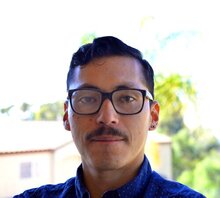Miguel A. Avalos and Ghassan Moussawi recently published a co-authored paper titled "(Re)framing the emerging mobility regime at the U.S.-Mexico borderlands: Covid-19, temporality, and racial capitalism". Miguel A. Avalos is a Doctoral Candidate at the University of Illinois at Urbana-Champaign in the Department of Sociology and Ghassan Moussawi is an Associate Professor also in the Department of Sociology. Click here to read the full co-authored piece.
Abstract: In this paper, we examine transborder commuters’ experiences (i.e. individuals who commute between U.S. and Mexican border cities frequently) during the Covid-19 pandemic, with keen attention to the links between racial capitalism and temporality. We address two interrelated issues: first, we unpack how the United States framed the pandemic through the metaphor of war and the production of the categories of ‘essential work(er)’ and ‘essential travel’ to ensure racial capitalism’s surplus labor and continuation. These categories function like a double-edged sword, tying racialized populations to racial capitalism’s temporality to exploit them while excluding privileged others. We argue that Covid-19’s temporality conflicts with racial capitalism’s temporality. While the former relies on the deceleration of everyday life, the latter depends on constant acceleration driven by profit-seeking. Using queer and feminist theoretical lenses, we then demonstrate how U.S. Covid-19 border restrictions at land ports of entry exacerbated transborder commuters’ cross-border travels and privileged some based on legal status. As a result, they used public Facebook groups to navigate and comprehend new commuting conditions, disidentifying with the United States’ official pandemic framing and producing their own. This shared experience catalyzed ‘digital transborder kinships’ or temporally-bound socialities rooted in relational care, advocacy, and knowledge production.
Ghassan Moussawi
Miguel A. Avalos

